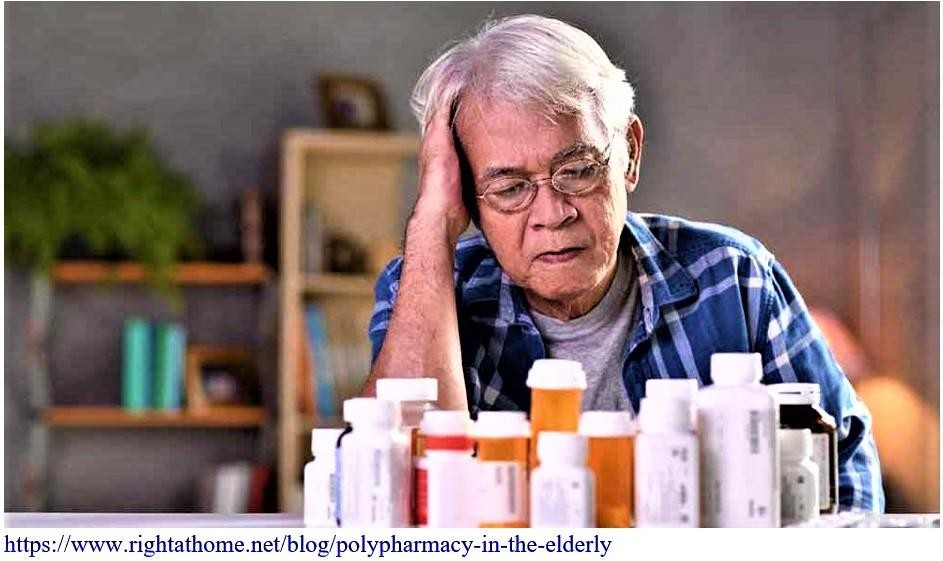By: Virgilio C. Ventura
Aging is inevitable; the only question is how healthy and vibrant we will be in our senior years. Medication management is a significant issue for many of our senior citizens. Many of them have become reliant on maintenance medications to maintain their health. Medicines, often referred to as drugs, are used to prevent or treat diseases and other health conditions.1/ Outpatient prescription drugs (OPD) are more frequently “a major source of out-of-pocket expenditures” among the Filipino elderly.2/ However, medication management is the ultimate irony in that, while it advocates for saving lives, it also has the potential to kill. Thus, the goal of this article is to look at the possibility of slowing down the aging process and staying healthy as we discover ways to age gracefully.

The term “maintenance medicine dependency” refers to the use of medications to treat chronic conditions. This means the patient is constantly taking medications to keep their condition from worsening and to maintain a certain level of health and quality of life. In most cases, the medications prescribed are long-term medications that the patient must take for an extended period.
This dependency can be both costly and time-consuming. It can also lead to other issues such as side effects, drug interactions, and even addiction. Medication administration errors (MAEs) are among the most frequently identified adverse events caused by medication mismanagement. The World Health Organization has in fact asserted that: “Unsafe medication practices and medication errors are a leading cause of injury and avoidable harm in health care systems across the world. Globally, the cost associated with medication errors has been estimated at $42 billion USD annually. Errors can occur at different stages of the medication use process. Medication errors occur when weak medication systems and/or human factors such as fatigue, poor environmental conditions or staff shortages affect prescribing, transcribing, dispensing, administration, and monitoring practices, which can then result in severe harm, disability and even death.”3/

In the Philippines, “potentially inappropriate medication (PIM) is a major health problem among older adults due to the high risk of adverse drug events,” and “PIM was significantly associated with polypharmacy (multiple medication) … in a sample of hospitalized older patients.”4/ Managing risks related to the medication administration process is most critical to improve the health condition of the elderly patients and lengthen their life survival.
Factors That Lead to Medication Dependency
Many factors can contribute to dependence on maintenance medications. Many people in their senior years suffer from chronic illnesses, which frequently necessitate medication. Similarly, certain lifestyle choices, such as a poor diet and a lack of exercise, can harm a person’s health.
As we age, our bodies become more susceptible to illness and disease such that even if we have been living a healthy lifestyle, we are still at risk of developing chronic conditions.
For many people, retirement can be a difficult transition. We transition from having a full-time job to having more free time, so it is critical to find ways to stay active and involved. Without a job to keep us busy, we may become more sedentary, which can lead to weight gain and other health issues such as mental health deterioration.
Retirement can also be a stressful time for many seniors, who face financial difficulties, loneliness, and career marginalization. This stress can exacerbate health problems, which may require medication. It is critical to be aware of the potential risks associated with retirement and to devise strategies to mitigate them.

The Costs of Maintenance Medicine
Maintenance medication dependency can be extremely expensive. Not only are the medications themselves expensive, but there are additional costs associated with long-term medication use. These include doctor’s visits, lab tests, and other related costs. Furthermore, long-term medication use can result in side effects and other complications, which can add to the costs.
It is also important to note that the cost of medications can vary greatly from one country to another. In some countries like the Philippines, medications can be extremely expensive, making maintenance medicine dependency even more of a burden.
Even though some people may require medications to manage their chronic conditions, there are ways to avoid relying solely on maintenance medications. Several lifestyle changes can be made to help manage chronic conditions and improve overall health.
Proper Diet
Eating a healthy, balanced diet is critical for ageing gracefully without relying on maintenance medications. A diet rich in fruits, vegetables, and whole grains can help reduce inflammation and the risk of developing chronic illnesses.
We also need to make sure that we are getting all the essential vitamins and minerals that our body needs by taking a multivitamin and eating a diet rich in antioxidants that help reduce the risk of chronic illnesses as well as help manage existing conditions.
Getting Enough Sleep
Getting enough sleep is critical for maintaining good health and avoiding the need for maintenance medications. Not getting enough sleep can hurt our health and increase the risk of developing chronic illnesses. Additionally, not getting enough sleep can also increase the risk of side effects from medications.
It is important to have a consistent sleep schedule and to get at least seven to eight hours of sleep each night. It is beneficial to avoid activities that can disrupt our sleep, such as watching TV or using electronic devices. Moreover, it is important to make sure that our bedrooms are comfortable and that we are sleeping in a dark and quiet environment.
Exercise for Healthy Body and Disposition
Exercise is essential for aging without relying on medications for maintenance. Regular physical activity can help reduce the risk of developing chronic illnesses and can also help manage existing conditions. Physical activity can also help reduce stress and improve our overall mood.
Equally important is finding an exercise program that is suitable for our age and fitness level. It is important to find activities that we enjoy, as this will make it easier to stick with the program. Likewise, it is important to make sure that we are getting enough rest between exercise sessions, as this can help prevent injuries.

Additional Tips for Healthy Aging
“To date, no convincing evidence showing the administration of existing “anti-aging” remedies can slow aging or increase longevity in humans is available. Nevertheless, several studies on animal models have shown that aging rates and life expectancy can be modified.”5/ Apart from exercise and diet, there are several other tips that can help us age gracefully without relying too much on maintenance medicine. Additionally, it is important to stay socially active, as this can help reduce stress and can also help improve our overall mood. Spending more time with your family, enjoying your favorite hobbies, and traveling outside your immediate town can divert your attention to more enjoyable perspectives and interests.
Maintaining good oral hygiene can also help reduce the risk of developing chronic illnesses. It is also important to be mindful of our environment, as this can have an impact on our health. This includes things like air quality, noise levels, and other environmental factors. Getting regular check-ups can help detect potential health issues early. Healthy aging is successful aging process of growing older while maintaining physical health, cognitive abilities, and strong social relationships.6/
Conclusion
Maintenance medicine dependency can be a burden, both financially and emotionally. However, as discussed above, there are ways to healthy aging gracefully without relying too much on medications. This includes things like exercise, diet, sleep, and other lifestyle changes. Additionally, it is important to make sure that we are aware of potential side effects and interactions of medications and to discuss them with our doctor. END
NOTES:
- Taking Medicines Safely as You Age, National Institute on Aging. https://www.nia.nih.gov/health/taking-medicines-safely-you-age
- Rogowski, J.A., Lillard, L.A., & Kington, R.S. (1999). Prescription Drugs and the Elderly: Policy Implications of Medicare Coverage. https://www.rand.org/pubs/research_briefs/RB5028.html
- Medication without harm, WHO. https://www.who.int/initiatives/medication-without-harm
- Giron, M. S. T., & Cortes-Maramba, N. P. (2020). Appropriateness of Medication Prescribing in Hospitalized Older Adults in a Tertiary Teaching Hospital in the Philippines: A Cross-Sectional Study. Drugs – real world outcomes, 7(3), 213–219. https://doi.org/10.1007/s40801-020-00202-x
- Tosato, M., Zamboni, V., Ferrini, A., & Cesari, M. (2007). The aging process and potential interventions to extend life expectancy. Clinical interventions in aging, 2(3), 401–412. https://www.ncbi.nlm.nih.gov/pmc/articles/PMC2685272/
- 3 Key Components of Successful Aging, Concordia Life Plan Community. https://www.concordiaseniorliving.com/blog/3-key-components-of-successful-aging/








